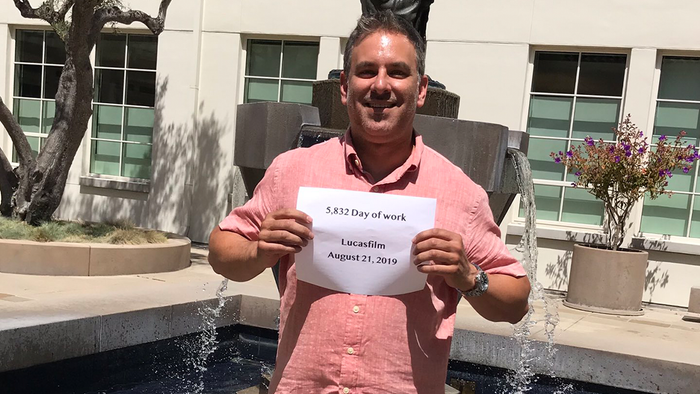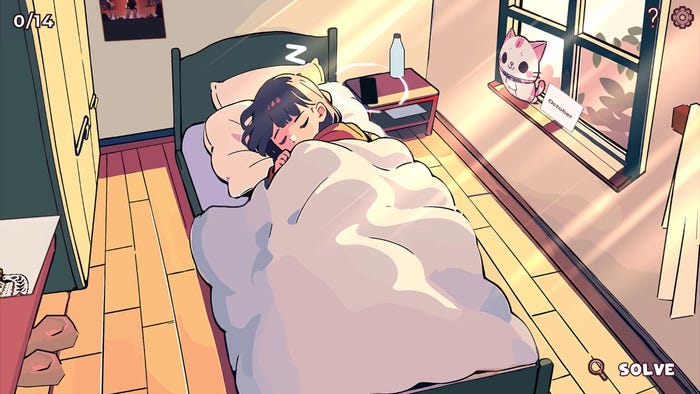
Featured Blog | This community-written post highlights the best of what the game industry has to offer. Read more like it on the Game Developer Blogs.
3 things I think I learned from Dishonored
A quick overview of plot and progression in Dishonored and 3 design lessons I think I might have learned or at least been made more aware of from playing it. Beware the post contains both Dishonored and Bioshock 1 spoilers.

Before you read any further be aware that the following contains spoilers for Dishonored and Bioshock 1 - so if you haven’t played those games and intend to do so, you might not want to read any further.
I have had Dishonored in my back catalogue for quite awhile and finally got to play it. I played it once and went stealth all the way. The game mechanics and level design was an excellent experience.
I did however have to alt+tab out of the game at some point to write this message to a friend - sorry for the use of the expletive.

After I finished playing I sat down and wondered why I found that plot twist so bad, what did I really expect was going to happen and why?
Plot and gameplay progression walking hand in hand
I knew I was close to the end of the game, my powers were levelled up so unless they would go completely out of line and add new powers or strip me of the current ones I had to be close to the end.
The story had basically also reached its conclusion, the traitor who had engineered the fall of the empress, kidnapped the heir to the throne and blamed me for the crime had been removed from power, and I was returning victorious to my group of rebels.

I did however feel that the game had one last challenge in store for me and that it would revolve around “The Outsider”.
Throughout the game you make contact with an entity called “The Outsider”, in the beginning he says that you are special and he grants you magical powers. He has shrines placed throughout the game, they are optional bonus objectives you can search for and they would give you small hints of the bigger picture. He felt pivotal to the whole story, so I expected a plot twist involving him - explaining why I was chosen and the outsiders stake in the empire’s fate.
What ends up happening is this: You are betrayed by the rebels, they kidnap the heir to the throne (again) and blame you for all the rebel business (again) and leave you for dead (again).
To complete the game you en up going through a compressed version of what you have already done again: Track down the people responsible for your (second) downfall and deal with them (again) and (once again) rescue the heir. Game over.
A disappointing ending, but here are at least 3 observations that I hope I have learned from and won't repeat myself.
1) Don’t repeat story structure in an action game
I was expecting a plot twist, the game had set it up very nicely, the big question was - what will the plot twist be? Would all of my friends be murdered by assassins, the heir missing, the outsider taking me to the other realm?
Nope, the plot twist was the rebels just used as a pawn to get to the throne and the plot repeats it self.
In an action game like Dishonored it felt disappointing and lazy that they repeated the same plot. The plot twist might have worked in a movie, but in my case I just felt like alt+tab’ing and telling my friend it was BS.
2) Game progression hints story progression
In a linear action game there is strong correlation between the games progression and the story. The player will have a good idea of how far they are in the game and thus the linear story, based on how many points they have spent on skills, their level, gear etc. This can be used to guide the players expectations, which is great tool - just don’t setup for a big plot twist and then have it fizzle.
Thinking back on other games I know I have experienced this way of setting up important moments in the game before.
The classic example in early FPS games would be this: You came to a room with all the weapons and health kits and armor you could carry - finding that room you knew that there was a boss “behind the next door”. I’m not sure it was intended, but anyway you knew when you left the weapon storage that it was “The Bossfight” and tension increased; I could find myself thinking “Am I ready for this?”. The result of a weapon room like that is shown in the screenshot below.
(3D_Realms)-4.jpg/?width=700&auto=webp&quality=80&disable=upscale)
Above is using progression to set up the expected, you can also do the unexpected and set up a great plot twist!
This is what Bioshock 1 did: You are about to face the top villain Andrew Ryan and you prepare yourself mentally for the boss fight… but it never happens, instead the game makes you reconsider every action you have taken so far...
You realize that everything you have done in the game was perform orders from "masters", you have not had free will. You have been a slave of a man wanting to take down Ryan all the way, and Ryan might not even be the real villain.
Andrew Ryans final action in your encounter with him is asking you to kill him. He hands you his golf club and you brutally club him to death, again doing what you were told to by a “master” - not out of free will. This moment is memorable and one of the reasons Bioshock received the amount of praise it did.
Both Dishonored and Bioshock is around 2/3 into the game at the point of the twist. They both tell the player that he/she was a pawn in a bigger play and then the similarity stops.
1) Dishonored now has you take revenge again over a group of people that did the same to you as the guys before them. Your character has not made progress 2/3 into the game and you are back to square one plot wise.
2) In Bioshock you have defeated the perceived main villain and must now fight the real villain under your own free will and escape from the crumbling city. You have not only progressed, the big boss fight fought itself (he actually wasn’t the boss fight) you must now find a way to get “free will”, escape the crumbling city and you must now question who you are as a main character. Everything has been turned upside down.
3) Leaving stuff too open is frustrating
”The Outsider” remains a mystical presence that is somehow teased to have a role in some greater picture, a picture I never feel I got to see.
The player meets and listens to “The Outsider” throughout the game as he has secret shrines placed around the city, and appears here and there. Every time a shrine is visited he reveals a bit of story or asks questions about you or your friends motives.
In the end I was not any closer to knowing who he is and he just feels like a convenient excuse to give you magic powers as he has no influence on how the story ends - he is just “mysterious”.
I think the lesson to be learned is that when you create a universe don’t introduce too many “magic” or “unexplained” plot vehicles as they muddle the picture and create an expectation in the player that this “cool and secret thing” will be revealed by the end - when you don’t reveal it you leave your player disappointed.
Read more about:
Featured BlogsAbout the Author(s)
You May Also Like








